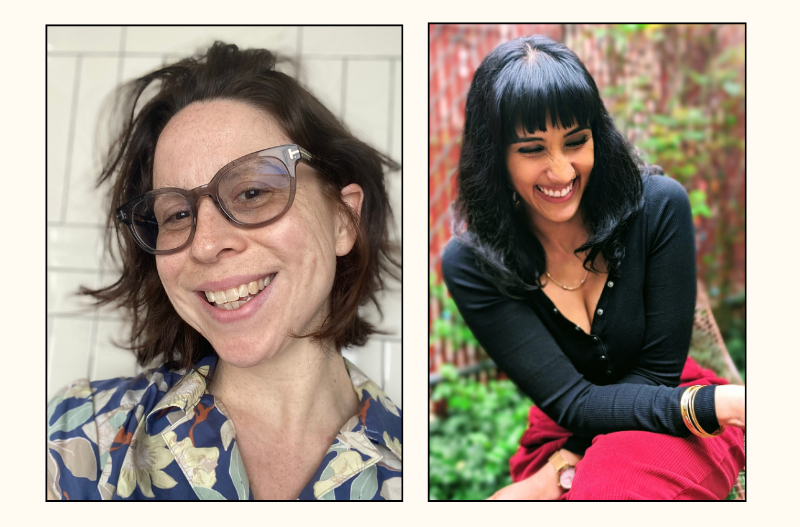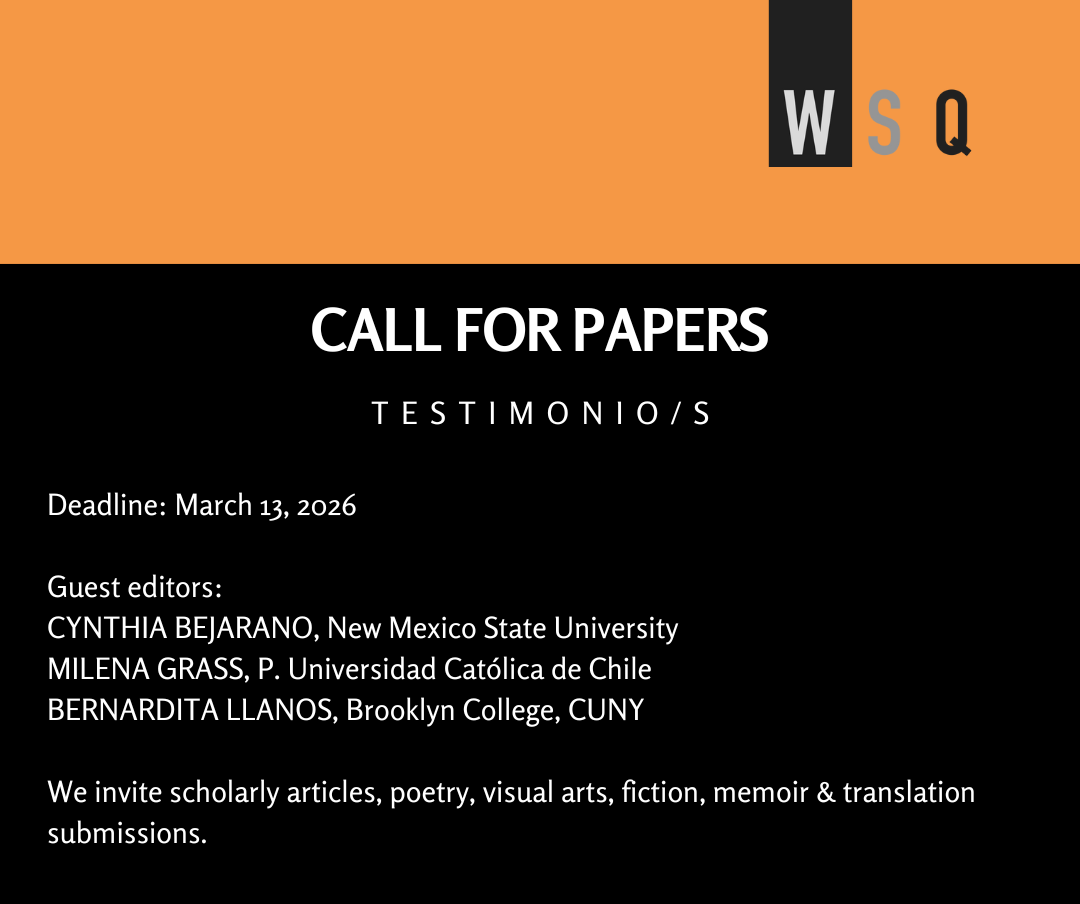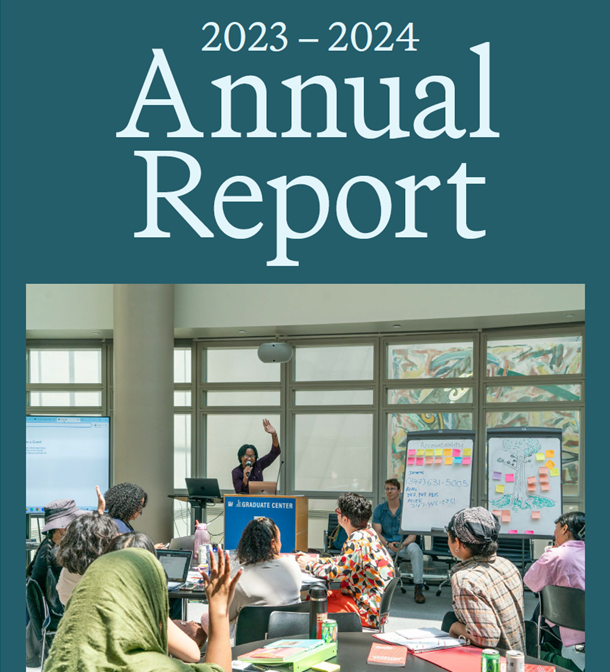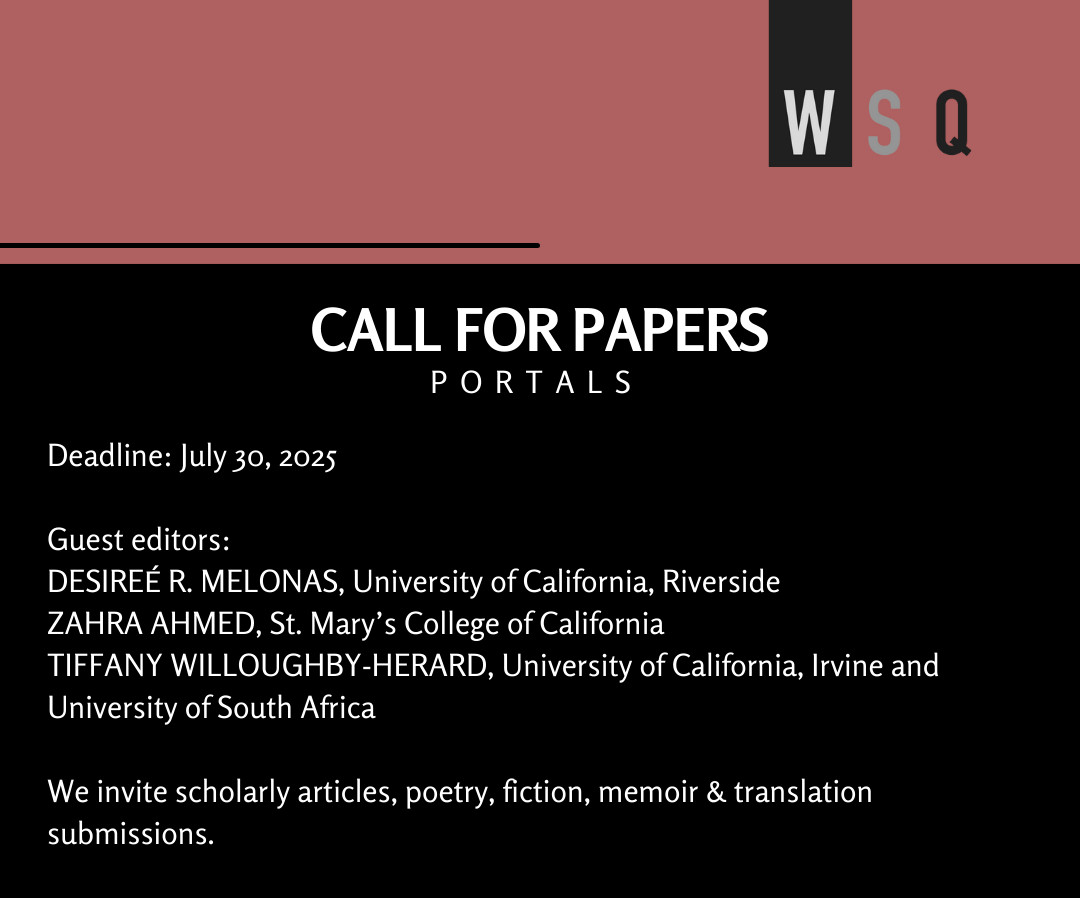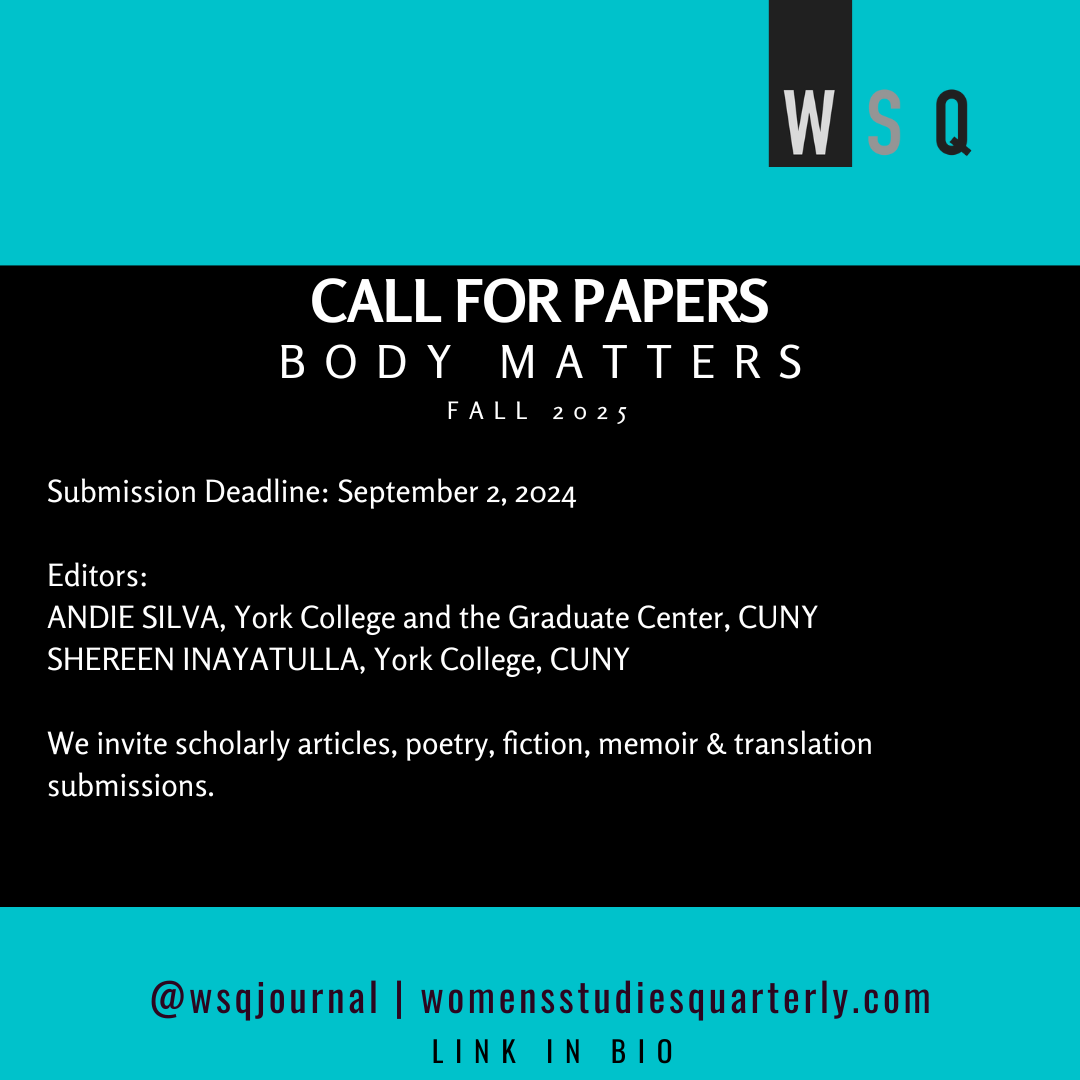WSQ
About
Since 1972, WSQ has been an interdisciplinary forum for the exchange of emerging perspectives on women, gender, and sexuality.
Its thematic issues focus on such topics as Activisms, The Global and the Intimate, The Sexual Body, Trans-, Technologies, and Mother, combining psychoanalytic, legal, queer, cultural, technological, and historical work to present the most exciting new scholarship on ideas that engage popular and academic readers alike. In 2007, WSQ was awarded the Council of Editors of Learned Journals’ Phoenix Award.
WSQ is a peer-reviewed interdisciplinary journal published twice a year in June and December. Along with scholarship from multiple disciplines, it showcases fiction and creative nonfiction, poetry, book reviews, and the visual arts.
Call for Papers
Testimonio/s
Edited by co-edited by Cynthia Bejarano, Milena Grass, and Bernardita Llanos.
WSQ invites scholarly articles, poetry, fiction, memoir & translation submissions.
Deadline: March 13, 2026
Featured
WSQ: No estamos a la intemperie: An Open Call
Edited by Ángeles Donoso Macaya and Kendra Sullivan
No estamos a la intemperie: An Open Call is the first open call issue in the 50-year lifespan of the academic journal WSQ.
The issue will feature articles in both English and Spanish, with themes ranging from drag pedagogy to Black Feminisms and humor; from transnational feminisms in Eurasia to testimonies of trans men in Guatemala.
The issue begins with the image of a warren to conceptualize the house of feminisms. The guest coeditors take this concept from Argentine feminist thinker Verónica Gago, who recovers it in her reading of Carolina Meloni’s Feminismos transfronterizos (2022). The warren or house of feminisms seeks to “shelter different problems, theoretical lines, rebellious genealogies and consistent deviations from feminist thought.”

“WSQ is providing exactly the kind of thoughtful, creative, forum we need in these challenging times. Brava!”
—Alice A. Jardine, Harvard University
People

Andie Silva

Dana-Ain Davis
Advisory Committee
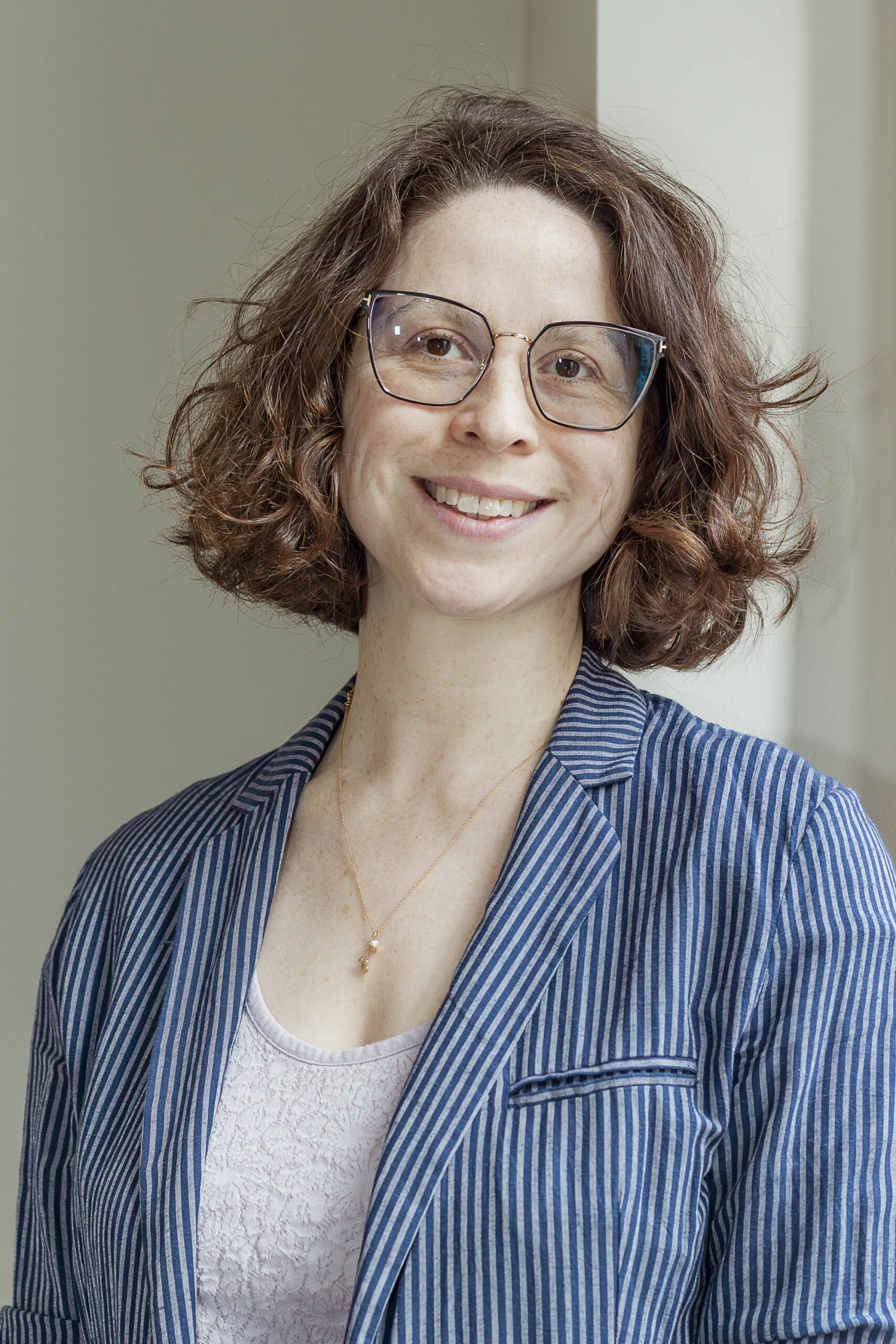
Kendra Sullivan
NYC CJH Co-Director, CUNY

Shereen Inayatulla
Upcoming
Conversation, Reading & Celebration
<em>WSQ</em> “Body Matters” Special Issue Launch
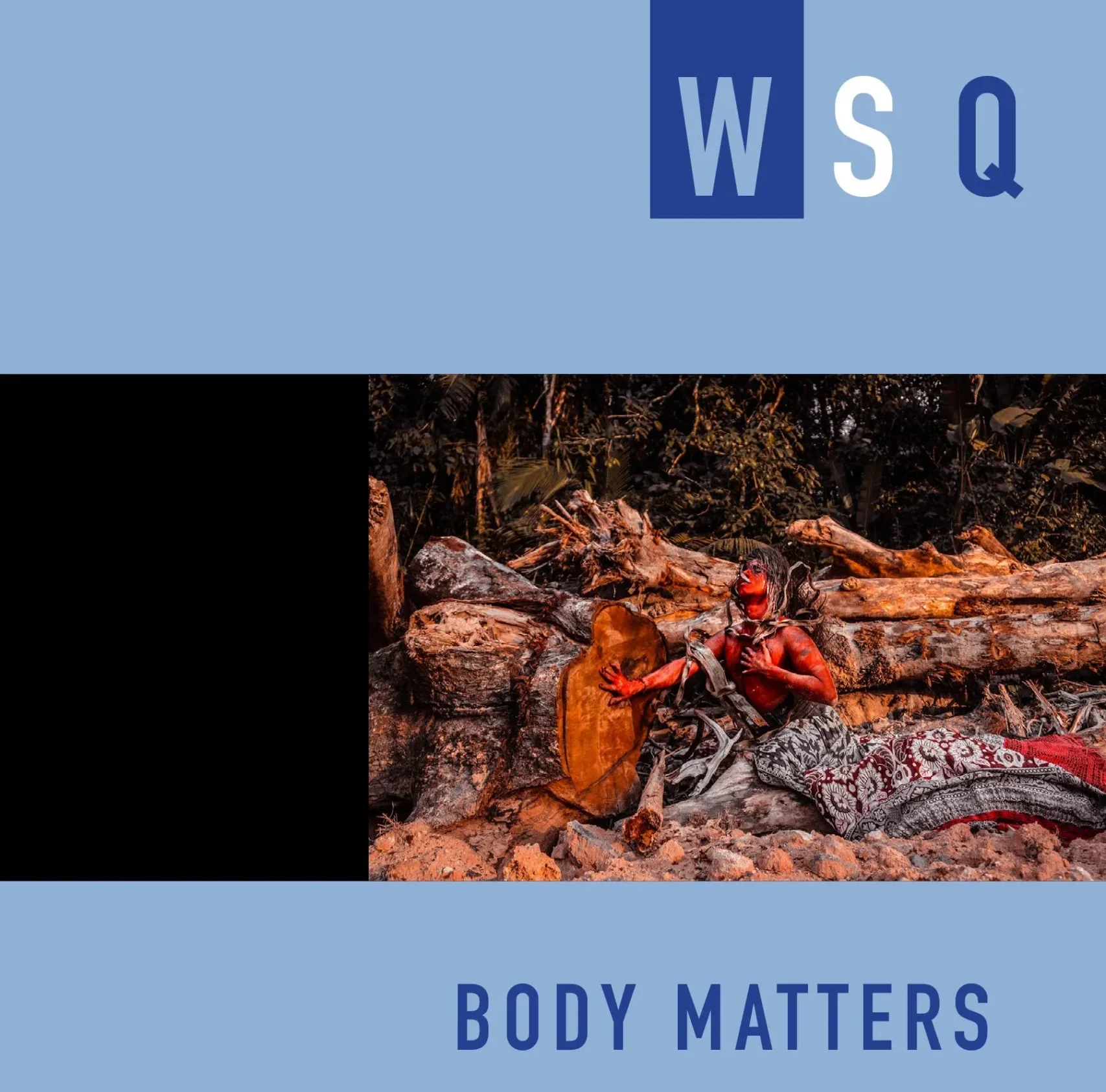
Past
Conversation & Reading
“The Hollow Pillars of the Law”: Chilean Poetry in the Time of Pinochet

Current Opportunities
News
Past
Open Positions & Opportunities
Call for New WSQ (Women’s Studies Quarterly) General Editors

Deadline
Opportunities & Call for Papers
WSQ Call for Papers: Living with Chronic Illness
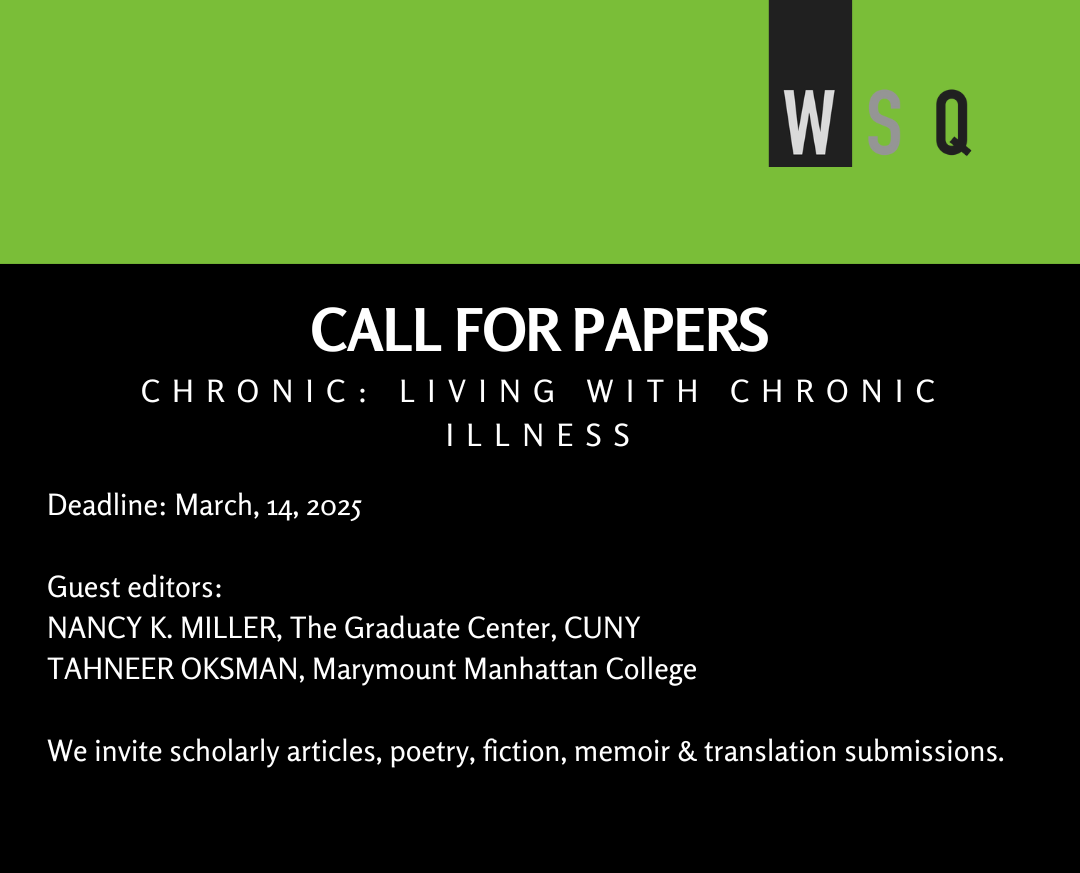
Deadline
Opportunities
WSQ Call for Papers and Creative Work: NO ESTAMOS A LA INTEMPERIE: An open call

Priority Deadline
Opportunities
Women Studies Quarterly (WSQ) Call for New General Editors


